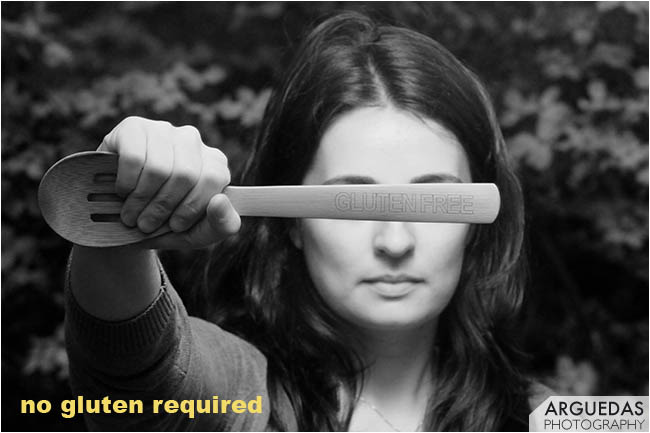Laura Vozzella of the Baltimore Sun ruffled some feathers with her article, "In Defense of Gluten".
She then published the quip: Gluten-free community attacked (again)! Pointing to John McIntyre's questioning the validity of the term community, which twisted some underwear as well.
1. I think Laura Vozzella was attempting to come off as cheeky in her first article. I am willing to give her that.
2. John McIntyre wasn't "attacking" a specific group (perceived or otherwise) he was bringing up the idea/definition of "community."
3. This leads me to believe Laura Vozzella was being intentionally flip in her blog post.
I get it. Being provocative gets people's attention and if you feel your buttons are being pushed, the fastest response is to push back. That said, some really interesting ideas have come up. Is there such a thing as a gluten-intolerant community?
Though we don't do everything together, my neighbors are part of my physical community.
People have different tasks at work, but are part of a work environment and community.
People reading news papers, posting on message boards, taking part in online forums and listservs are part of real and imagined communities.
If you are engaged in a religious group or club you can be part of a physical gathering of people and be part of a larger organization with more people you may identify with, even though you have never met them.
If we think of a community as a group of persons with shared experiences, then yes, not eating gluten can be an imagined or real community.
If I don't "know" you random person reading this who has also endured vomiting, bleeding, pain, headaches, GI issues galore, medical tests, diagnosis, months of still being sick, and the joys of feeling better and success of FINALLY making a loaf of bread that didn't taste like cardboard, then we still have different but similar shared experiences.
Why does this matter?
Not being able to do or partaking in social events, not being able to eat with others is isolating. There are those who have felt ostracized by their peers, those by their religion (Catholics who cannot be accommodated with a gluten-free host, often struggle with their priest and faith over communion), and the very unlucky who deal with people who actively attack them for an autoimmune disease that they have no control over.
Having a community, real or imagined, is important. It make me feel less weird and odd, I am not the ONLY freak-a-zoid out there who experiences heart palpitations when there are crumbs all over a table I just sat down at and now they are all over my hands. I have a sense of helping others by filing complaints (1, 2, and my UTZ its-not-gluten-free-email-blast of '07) so that others don't get sick like I did. I feel that I am part of a community and part of my duty is to not only look out for myself, but for others like me because there isn't anyone doing it for us.
Blogging, posting to gluten free message boards, searching and commenting on recipes, attending support groups and even spending extra time hunting for ingredients, are just some ways people are involved in this community and how its always changing. You don't have to self-identify as part of this community, and quite frankly if there was a pill, shot or even an intestinal parasite that would get me out of this club, I would do it in less than a heartbeat. But for now, I am ok with pot-shots at gluten-free products, which are 2-5x the price of gluten-filled ones and for semantic discussions of language.
For the record, I have no ill feelings towards anyone or anything. I don't hate gluten, I am just not in love with my T-cells which for some reason in 2007 decided to wage war on the protein. Lets all get angry at T-cells! Take that you microscopic thing that I have no ability to currently change!
Friday, March 5, 2010
Subscribe to:
Post Comments (Atom)



I'm just catching up on last month's posts now...
ReplyDeleteI really liked this post. Like every person with celiac disease, I didn't ask to be part of this club. But the experience of being thrown together with all the other gluten-intolerant freaks has been a fascinating education on food and politics and people. On one hand, some of our community members are a bit nutty, such as the posters on celiac.com. But then there are amazing food bloggers like you, who combine science and gastronomy to eat well despite this illness. There's always the unexpected joy of making an instant friend at a party: "You have celiac? I have celiac! You can't drink beer? I can't drink beer! You brought a gf apricot tart to the potluck? Omg, let's talk about Elephant Walk." Inclusion in the Celiac Club is mandatory, but participating in various community manifestations is elective, and the more I participate, the better and stronger I feel.
Jessica, you are so right about feeling an instant connection with a total stranger and how it starts really great conversations. I have found the best resources from unexpected meetings at parties or staring at the gluten-free shelf at the grocery store. Its more than nice not to feel alone, it does make me feel strong and that its not as hard as it first was. Oh man, and now I want some PIZZA!
ReplyDelete